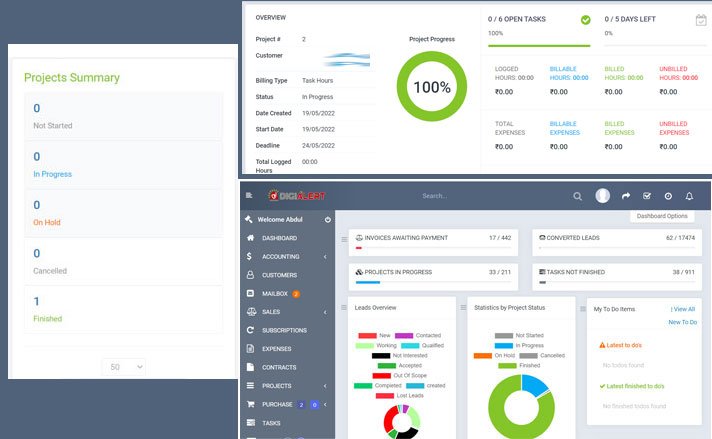Microsoft Azure Penetration Testing
"Why settle for just a cloud when you can test it for holes like Swiss cheese?"
Microsoft Azure Penetration Testing
WHAT IS
Microsoft Azure Penetration Testing
As digiALERT, we perform Microsoft Azure penetration testing to ensure the security and integrity of our customer's systems and data on the Azure platform. This process involves simulating real-world attacks on systems and applications running on Azure, to determine their level of resistance and identify potential vulnerabilities. By identifying and addressing these vulnerabilities before they can be exploited by attackers, we help to prevent data breaches and other security incidents.
To conduct the Microsoft Azure penetration testing, our team use specialized tools and techniques to simulate various types of attacks, such as network penetration testing, web application testing, and social engineering testing, and analyzing the system's response. By performing this type of testing regularly, we help our customer to ensure the security and integrity of their systems and data, and also to comply with industry standards and regulatory requirements.
Speak to an expert
key features
Microsoft Azure Penetration Testing
Types of
Microsoft Azure Penetration Testing
As digiALERT, we provide Microsoft Azure penetration testing services to evaluate the security of our customer's Azure environments. This includes simulating a cyber attack to identify vulnerabilities and weaknesses that could be exploited by an attacker. Our goal is to provide recommendations for improving the security posture of the environment, and protect against potential threats.
Our Microsoft Azure penetration testing process covers several key features, such as:
- Testing the security of Microsoft Azure infrastructure and services
- Identifying vulnerabilities and weaknesses in Azure cloud environments
- Evaluating the effectiveness of security controls and configurations
- Providing recommendations for improving security posture
- Conducting testing in accordance with industry best practices
- Simulating a range of attack scenarios
- Assessing the impact of vulnerabilities on business operations
- Validating the effectiveness of security controls and configurations
- Providing detailed reports on findings and recommendations
- Providing guidance on remediation and prevention of future attacks.
We ensure that our testing process is thorough and comprehensive, following industry best practices and standards to identify vulnerabilities and weaknesses in the Azure environment that could be exploited by an attacker. By providing detailed reports on our findings and recommendations, we aim to assist our customers in improving their security posture and reducing the risk of potential future attacks.
Statistics on
Microsoft Azure Penetration Testing
Speak to an expert
How do we do
Microsoft Azure Penetration Testing
- Scope definition: Clearly define the scope of the testing, including the systems and networks to be tested and any limitations or exclusions.
- Information gathering: Collect relevant information about the target systems and networks, such as IP addresses, domain names, and network infrastructure.
- Vulnerability assessment: Identify vulnerabilities in the systems and networks through the use of various tools and techniques, such as network scanning, application testing, and manual testing.
- Exploitation: Attempt to exploit vulnerabilities to gain access to the systems and networks.
- Reporting: Document the findings of the testing, including details of the vulnerabilities discovered and the methods used to exploit them.
- Remediation: Work with the client to implement measures to mitigate or fix the vulnerabilities discovered during the testing.
- Follow-up testing: Perform additional testing to verify that the vulnerabilities have been successfully addressed.
WHY MICROSOFT AZURE PENETRATION TESTING
WHO NEEDS MICROSOFT AZURE PENETRATION TESTING
Microsoft Azure is a cloud computing platform and infrastructure created by Microsoft for building, deploying, and managing applications and services through a global network of Microsoft-managed data centers. It provides a range of cloud services, including those for computing, analytics, storage, and networking. Users can choose and configure these services to meet their specific needs.
Due to the sensitivity and importance of the data and applications hosted on Azure, it is essential to ensure the security of the platform. This is where Azure penetration testing comes in. It is a simulated cyber attack on the Azure infrastructure to test the system's defenses and identify any weaknesses that could be exploited by malicious actors. This testing is crucial for organizations using Azure to protect their data and applications from potential threats and vulnerabilities. It is also important for ensuring compliance with industry and regulatory standards.
How often Microsoft Azure Penetration Testing recommended
When it would be performed
Microsoft Azure penetration testing is a process that involves simulating a cyber attack on an organization's Azure cloud infrastructure in order to identify vulnerabilities and assess the effectiveness of the organization's security measures. It is recommended that organizations perform Azure penetration testing on a regular basis in order to stay ahead of potential threats and ensure that their cloud infrastructure is secure. This can be especially important for organizations that handle sensitive data or that are subject to regulatory compliance requirements, as a breach of their cloud infrastructure could have serious consequences. Some organizations may choose to perform Azure penetration testing on a quarterly or annual basis, while others may choose to do it more frequently depending on their risk profile and the potential impact of a security breach. Ultimately, the frequency of Azure penetration testing should be determined by the organization's risk assessment and its goals for ensuring the security of its cloud infrastructure.
Speak to an expert
How are we
unique
- Expertise: We have a team of highly skilled and experienced professionals who have deep knowledge and understanding of Microsoft Azure and its vulnerabilities.
- Customized approach: We offer customized penetration testing services that are tailored to meet the specific needs and requirements of our clients.
- Comprehensive coverage: Our testing methodology covers all the major components of Azure, including virtual machines, storage accounts, network security groups, and more.
- Continuous monitoring: We provide continuous monitoring and support to ensure the security of your Azure environment.
- Detailed reports: Our reports provide a clear and detailed analysis of the vulnerabilities found, along with recommendations for remediation.
- Industry compliance: We adhere to industry best practices and standards, including PCI DSS, HIPAA, and NIST, to ensure compliance with regulations.
- Cost-effective: Our services are competitively priced and offer excellent value for money.
- Fast turnaround: We can complete testing within short timelines to minimize disruption to your business.
- Regular updates: We keep ourselves updated with the latest threats and vulnerabilities in the Azure environment to provide timely protection.
- Proactive approach: We take a proactive approach to security and strive to identify and address potential vulnerabilities before they can be exploited.













 ISO/IEC 27001:2022
ISO/IEC 27001:2022 ISO/IEC 27001:2022
ISO/IEC 27001:2022 ISO/IEC 20543:2019
ISO/IEC 20543:2019 ISO/IEC/IEEE 29119-5:2024
ISO/IEC/IEEE 29119-5:2024 CSA Certificate
CSA Certificate Incorporation
Incorporation Makeinindia
Makeinindia Authorized partner
Authorized partner MSME Chennai
MSME Chennai digiALERT Tan
digiALERT Tan GST Chennai
GST Chennai Pancard
Pancard Amended GST
Amended GST